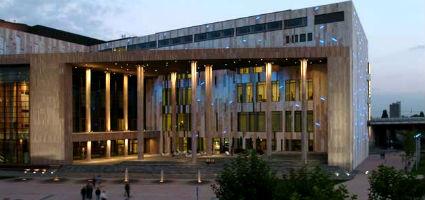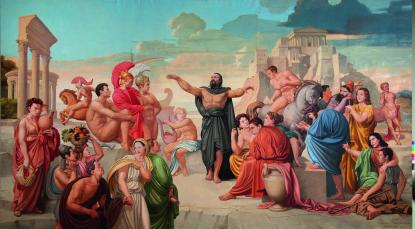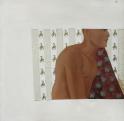2024. April 29. Monday
Ludwig Museum - Museum of Contemporary Art - Budapest
 |
Address: 1095, Budapest Művészetek Palotája, Komor Marcell u. 1.
Phone number: (1) 555-3444, (1) 555-3457
E-mail: info@ludwigmuseum.hu
Opening hours: Permanent exhibition: Tue-Sun 10-18
Temporary exhibition: Tue-Sun 10-20 |
The exhibition has closed for visitors.
2015.07.10. - 2015.09.13.
Museum tickets, service costs:
|
Group ticket
(over 20 people 20% discount)
|
1000 HUF
|
|
|
Ticket for adults
(valid for the temporal exhibitions)
|
1200 HUF
|
|
|
Ticket for students
(valid for the temporal exhibitions)
|
600 HUF
|
|
|
Ticket for pensioners
(valid for the temporal exhibitions)
|
600 HUF
|
|
|
Ticket for families
(1 parent + max. 4 children)
|
1600 HUF
|
/ family
|
|
Ticket for families
(2 parents + max. 4 children)
|
2400 HUF
|
/ family
|
|
Ticket for adults
|
960 HUF
|
|
|
Ticket for students
|
480 HUF
|
|
|
Program ticket
|
600 HUF
|
|
|
Guide
|
4000 HUF
|
|
|
Guide
|
5000 HUF
|
The St. Petersburg based neo-academism flourished at the beginning of the 90s under the spiritual guidance of the nonconformist Russian philosopher, artist and theoretician, Timur Novikov. While in the eighties Novikov and "new artists" were active in alternative rock, film and theatre "the new fine arts academy," established in 1989 the beauty concept rehabilitated classicism and historicist aesthetic values, historical forms existed under the spell of sensuality and hedonism. The self-organized art academy soon became important meeting place for the Russian and the international art world and a symbol a new, free-spirited Russia.

The intellectual legacy of Novikov who deceased in 2002 today is owned by neo-academy delivering it in their works, continuing the examination of artistic beauty, the notion of classicism, which losing his innocence, in the twentieth century stood in the service of totalitarian regimes. The exhibition that reviews this significant but controversial era of Russian art was created by the cooperation of the Ural Vision Galéria of Yekaterinburg.
Curator: Ekterina Andreyeva, Andrey Khlobystin

The intellectual legacy of Novikov who deceased in 2002 today is owned by neo-academy delivering it in their works, continuing the examination of artistic beauty, the notion of classicism, which losing his innocence, in the twentieth century stood in the service of totalitarian regimes. The exhibition that reviews this significant but controversial era of Russian art was created by the cooperation of the Ural Vision Galéria of Yekaterinburg.
Curator: Ekterina Andreyeva, Andrey Khlobystin



